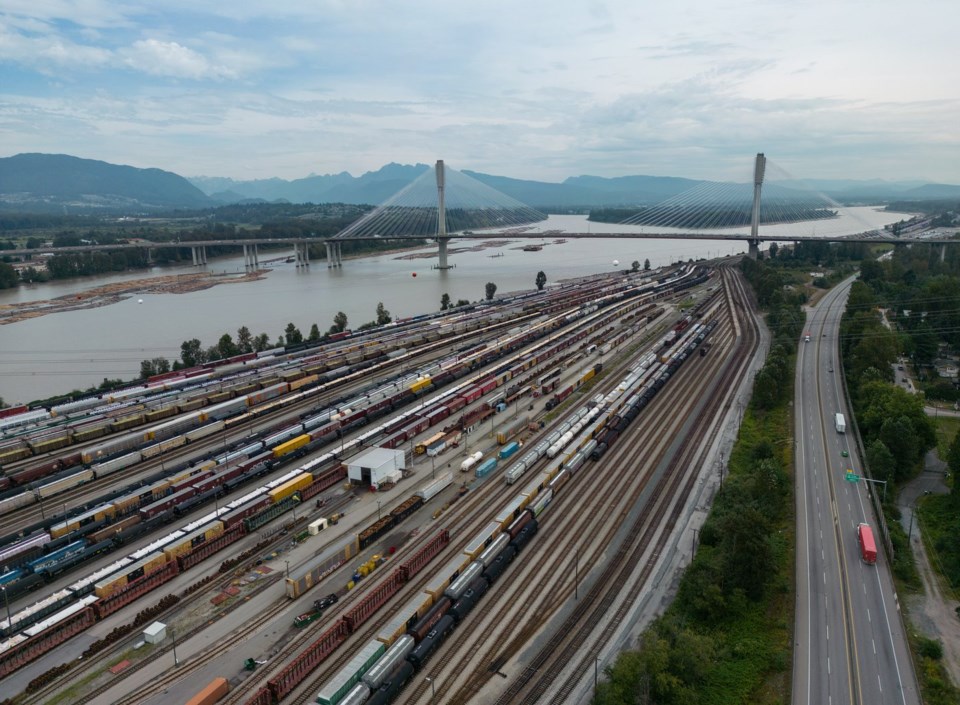The ongoing labour dispute between Canada’s largest railway companies and their workers is driving up the cost of shipping by truck, with smaller businesses disproportionately affected.
The co-founder of a Canadian startup said he’s facing wildly inflated trucking costs due to the ongoing dispute, with one quoted price more than double what it would typically cost.
Brust Protein Coffee co-founder Josh Barr said he will lose money if he pays the approximately $11,000 quoted to him for a truckload from Toronto to Calgary.
"As a small, growing business, we need every single dollar, and we put every single dollar back into the business," he said.
"This is just more or less wasted dollars because of an argument between the rail company and their employees."
Though the federal government is intervening in the work stoppage that began early Thursday morning at Canada's two major railways, the union is pushing back on the government’s efforts to get them back on the job, making it unclear when freight traffic will be fully back online.
Retail Council of Canada spokeswoman Michelle Wasylyshen said the trucking industry can’t possibly take on the sheer volume of goods normally sent by rail, driving demand higher and prices along with it.
"At the end of the day, there's just simply not enough trucking capacity to make up for rail," she said, adding that the longer the dispute drags on the worse the problem will get.
While larger retailers may have existing contracts with truckers at more normal prices, any companies scheduling at the last minute will be facing higher costs right now, she said. That will be a major problem in particular for smaller retailers that are less likely to have those kinds of contracts, she said.
But larger retailers aren't immune either. Wasylyshen said she heard from one large retailer that on Friday, trucking costs were as much as six times what they would be otherwise.
One train railcar has the capacity of two trucks, according to Warren D'Souza, senior manager of market intelligence and national industrial lead at Avison Young.
“Switching to trucks would place demands on a trucking industry already stretched by a shortage in available truckers and by high fuel prices. Meanwhile, freight that is so large and heavy simply couldn’t be transported on trucks as an alternate solution to trains,” D’Souza said in an emailed statement.
Due to low capacity, freight rates are three to five times higher than normal, said Michael Graydon, CEO of the Food, Health & Consumer Products Of Canada association, in an email.
But the issue may be short-lived if the dispute is as well, he added.
“It is really a matter of supply and demand so if the railways get back up and running quickly then the cost increases will not be an issue,” Graydon said.
Though retailers have been trying to divert as much as possible to trucks, there could still be availability and price implications on a wider variety of products, said Wasylyshen.
Barr said he's concerned that trucking companies may be taking advantage of the situation to raise prices, noting that after getting the initial $11,000 quote he reached out to another company and got a similar quote from them.
Normally this kind of shipment would cost just $2,000 to $3,000 by rail, he added.
Barr is delaying the shipment as late as he can to avoid paying the inflated cost.
"We're not in that position to be able to spend that money," he said. "I'm not Coca-Cola, I'm not Pepsi ... we are a Canadian start-up."
Barr can't wait long: he needs to make the shipment by Monday or risk delaying his upcoming Walmart launch and potentially facing extra cost repercussions from that as well.
"Being put in this situation isn't sustainable and certainly not fair. So hopefully they come to a solution very soon."
This report by The Canadian Press was first published Aug. 23, 2024.
Rosa Saba, The Canadian Press



